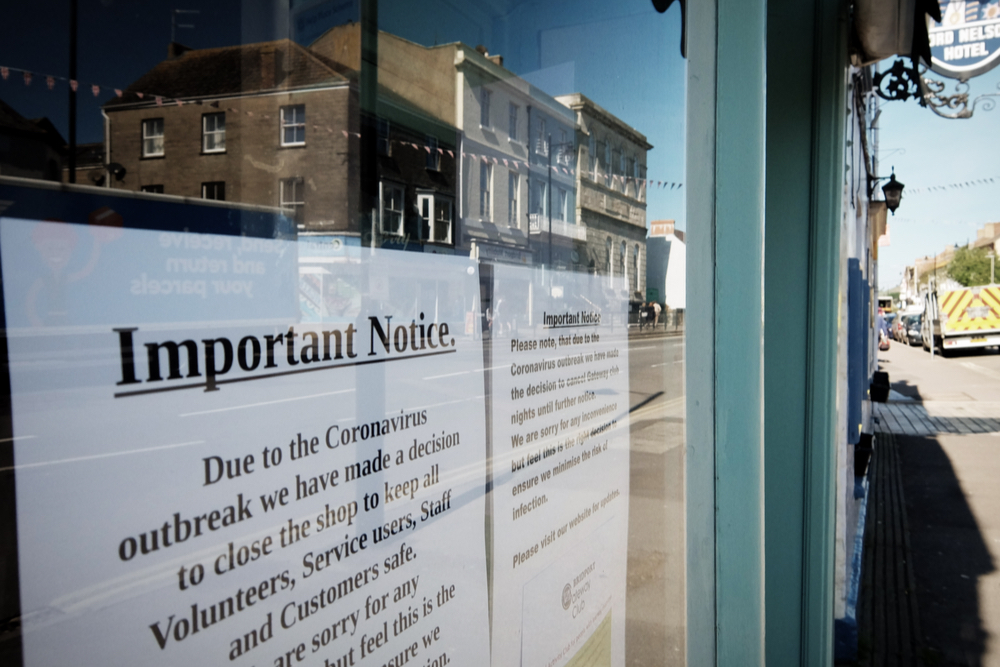
by Kim Pidgeon | Sep 30, 2021 | News
The latest Payments Survey from the British Retail Consortium reveals that debit and credit cards were used to pay for £326.2 billion worth of goods in 2020, accounting for 81% of all retail sales. This compares with £308.5 billion worth of sales in the previous year, or 78% of sales.
It is little surprise that 2020 saw a significant decline in cash payments. The Covid-19 pandemic and national lockdowns saw ‘non-essential retailers’ close their doors and high streets deserted as people shopped online leaving fewer opportunities for cash spending.
The ensuing social distancing measures and favouring of contactless payments has continued to negatively impact cash use with the volume of cash purchases falling by seven percentage points in 2020 to 30% of retail transactions.
Cash was used to pay for £60.9 billion worth of goods in 2020 (accounting for just over 15% of sales value), compared with £77.6 billion in 2019 (accounting for just under 20% of sales value). Given the circumstances, the decline of less than five percentage points in terms of sales value accounted for by cash suggests a high level of resilience for cash use remains.
The survey also reveals the pandemic has changed the way we shop, not just how we pay; with consumers making fewer but bigger shopping trips.
While the number of transactions fell by 13% (from 19.1 billion in 2019 to 16.7 billion in 2020), consumers spent on average 20% more per transaction. Thus, the average transaction value increased from £20.16 in 2019 to £24.15 in 2020.
The trend towards card payments in recent years has seen retailers incur costs of more than £1 billion just to accept these payments from customers in 2020. Debit cards, which accounted for over half of all transactions (54%) for the first time, have seen transaction fees rise by 22% (to 7.2 pence per transaction). Equivalent to £46 per household per year, these additional costs can translate into higher prices for consumers.
The BRC, along with other business groups, has long been calling on Parliament to intervene and tackle anti-competitive practices in card payments to protect British businesses and consumers from spiralling costs.
Andrew Cregan, payments policy advisor for British Retail Consortium said: “The pandemic has accelerated the trend towards card payments, with more than four in every five pounds spent in retail now made with credit or debit cards. Basket sizes also rose, as customers made bigger, but fewer purchases. While cash use has declined in importance, it remains vital for many people who do not have access to other payment methods.
“Despite the general movement to card payments, retailers are being punished through the soaring cost of accepting such payments. Parliament needs to urgently intervene in this anti-competitive behaviour by regulating card scheme fees and abolishing interchange fees, both of which ultimately hurt consumers. Card firms are abusing their dominant market position, and this must come to an end.”

by Kim Pidgeon | Feb 21, 2021 | News
One in five charities (19%) are weighing up moving to a smaller office in light of Covid-19.
Slightly less, 17%, are considering closing some or all of their offices, 7% might move to a shared office building with a partner organisation, while 37% are thinking about having staff working remotely full-time.
The need to change how and where companies and their employees work has been felt in every area of business since the beginning of the pandemic. A report from specialist insurer Ecclesiastical is highlighting the way in which the charity sector has been impacted, and how they have adapted in a bid to survive.
The report shows that loss of funding is front and centre of charities’ concerns for the immediate future with over half, 55%, putting it as the main threat for the next 12 months. 34% think it will continue to be a serious risk to their operations for the next three years, while 14% see it as a long-term (five year) issue.
Funding has plummeted in many areas of the sector due in part to temporary shop closures during lockdowns, necessary cancellation of events and fundraisers and social distancing rules making face-to-face fundraising practically impossible. While some charities have been able to access emergency funding, the report asks how these organisations will fare once such grants stop.
Digging into the loss of funding issue further, the survey questioned respondents ‘how long, if at all, do you expect your charity’s money reserves to last?’ Worryingly 48% answered a year or less, 12% of which stated only ‘up to three months’.
Covid-19: Changing to survive
Like most other sectors, charities have had to change how they work to be able to continue to operate and provide a service throughout the pandemic. Ecclesiastical’s report, Charity Risk Barometer 2020, shows, since March 2020, 83% of charities switched to digital methods of working (e.g. video calls, social media, etc), while 52% have adapted to working with the use of social distancing and PPE.
Ecclesiastical’s charity niche director Angus Roy recognised the willingness to adapt as a positive for a sector beset with challenges as a result of the pandemic.
“Covid-19 has challenged us in ways we’ve never experienced before, but it has also given us a chance to be bold and seize on new opportunities,” he said.
“Be that moving to all staff working from home, downsizing or sharing space with partners.
“The sector has adapted to meeting the needs of its users while changing how it works – which is no mean feat and should be applauded. It is no surprise that thoughts have been turned to how charities can evolve by adapting the way they operate, including the spaces they work from.
“While the continuing threat of a loss of funding plus huge demand continues to drive much of the sector’s decision making – charities have been presented with a unique opportunity to review what works for them and in doing so future proof their organisation.”
The Charity Risk Barometer 2020report is based on an in-depth survey of 252 senior charity leaders carried out by YouGov on behalf of Ecclesiastical in August 2020.

